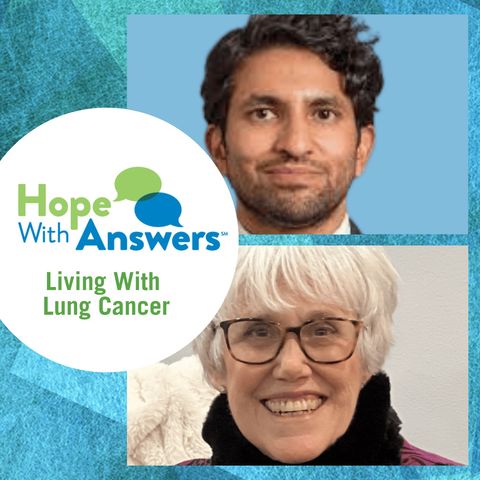Explore the remarkable small cell lung cancer treatment advancements that offer renewed hope to patients and their loved ones. Dr. Jacob Sands, a leading oncologist from the Dana-Farber Cancer Institute, and Maida Mangiameli, a small cell lung cancer survivor, share their expertise and experiences, providing a unique perspective on the latest breakthroughs in small cell lung cancer treatment. Dr. Sands explains the differences between small cell and non-small cell lung cancer, emphasizing the aggressive nature of small cell lung cancer and the importance of early detection through lung screening. He highlights the significant progress made in lung cancer treatments, particularly the introduction of immunotherapy drugs as a standard of care in the first-line setting, leading to long-term disease control and potential cures for some patients. The conversation shifts to the promising T-cell engager therapy, a novel approach that harnesses the immune system to target and destroy cancer cells. Dr. Sands uses a baseball analogy to illustrate the effectiveness of different treatments, suggesting that T-cell engagers may be hitting home runs more frequently, offering hope for longer-lasting responses with fewer side effects. Maida Mangiameli shares her personal journey with small cell lung cancer, emphasizing the importance of a supportive oncology team and not blaming oneself for the disease. She addresses the stigma associated with lung cancer and the need for increased awareness and empathy. Both Dr. Sands and Maida stress the significance of clinical trials in advancing small cell lung cancer treatment and encourage patients to discuss trial options with their doctors. They also touch on the importance of lung cancer screening for early detection, with Maida offering practical advice for newly diagnosed patients. The small cell lung cancer treatment advancements, particularly the emergence of T-cell engager therapy, provide tangible reasons for patients and their loved ones to remain hopeful, offering the promise of longer, healthier lives for those affected by this challenging disease.
Show Notes |
Transcript |
Watch Video


Comments